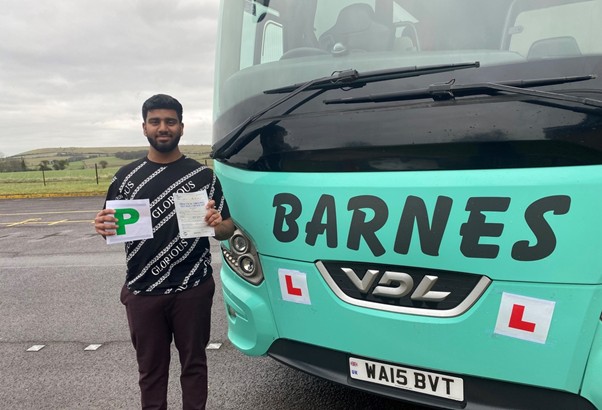October 20 2025
The Confederation of Passenger Transport (CPT) is urging the Government to act swiftly to help fill driver shortages by removing two outdated barriers that are preventing new entrants from starting careers behind the wheel.
The UK currently faces a 3.4% shortage of bus drivers and a 12.4% shortage of coach drivers, equivalent to a shortfall of over 4,000 drivers nationwide. Despite strong recruitment efforts, operators are hampered by regulations which slow down training and restrict young people from driving.
CPT is calling for two key reforms:
- Lift the 50km regular service limit for 18–19-year-olds: Under current rules, drivers under 20 are restricted to operating regular services of no more than 50km per service.[1] This excludes them from the vast majority of coach driving work, discouraging new entrants at a time when the industry urgently needs them.
- Allow training before a provisional licence is issued: At present, new recruits cannot undertake the theory and off-road modules of their Driver CPC test until their provisional licence has been granted – which often takes weeks or months. The processing delays mean many candidates accept an offer but leave for other sectors before training can begin. Allowing operators to put recruits through these early modules immediately would save valuable time, give applicants a clearer career pathway from day one, and help retain talent that might otherwise be lost.
The call follows the Government’s recent decision to lower the minimum age for train drivers to 18 - a move supported by unions and designed to ease rail driver shortages. A public consultation was also held last year on removing the 50km restriction for 18–19-year-old bus and coach drivers, but no outcome has yet been published.
Keith McNally, Operations Director at CPT, said: “The evidence is clear: age itself is not a key determinant of collision risk - experience is. DfT and DVLA data shows that young vocational drivers have fewer collisions than their peers with car licences and perform comparably with drivers aged 21 and over. At the same time, long waits for provisional licences mean too many willing applicants drift to other sectors before they can even start training. Tackling both of these issues would make a real difference to driver numbers.”
CPT highlights the inconsistency with other transport sectors. An 18-year-old can legally drive a 44-tonne lorry, a car transporter, or even a petrol tanker on the UK’s busiest roads - yet cannot drive a coach carrying students on a trip more than 50km away.
Graham Vidler, Chief Executive of CPT, added: “We all want safe, reliable and affordable bus and coach services. The quickest way to support that is to unlock the potential of young people who are eager to start their careers in our sector. The Government has already taken this step for rail - now it’s time to back Britain’s buses and coaches by removing these outdated restrictions.”
Case study: Aidan’s story
When Aidan Travasso joined Swindon-based Barnes Coaches, he was excited to follow in his great grandfather’s footsteps, who founded Goa’s first bus company in India. But after passing his Passenger Carrying Vehicle Test five months after his 18th birthday, Aidan was disappointed to discover he could not drive most contracts due to the 50KM restriction.
“It didn’t make sense. My driving ability didn’t change between the day before and the day after my 20th birthday,” Aidan, who turned 20 earlier this month, said. “Now I can drive longer routes, it’s much more fun. I just wish I could have started sooner.”
[1] With the exception of vehicles with 9 to 16 passenger seats.
